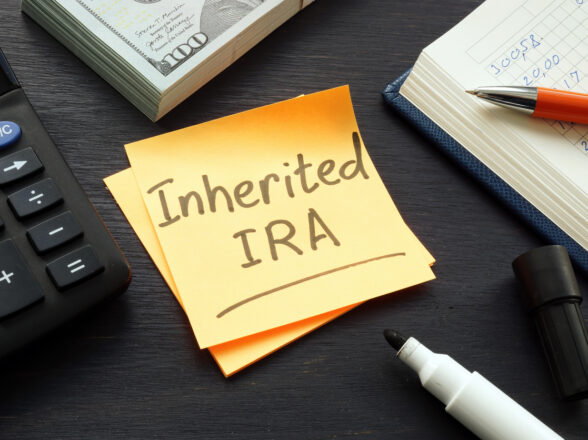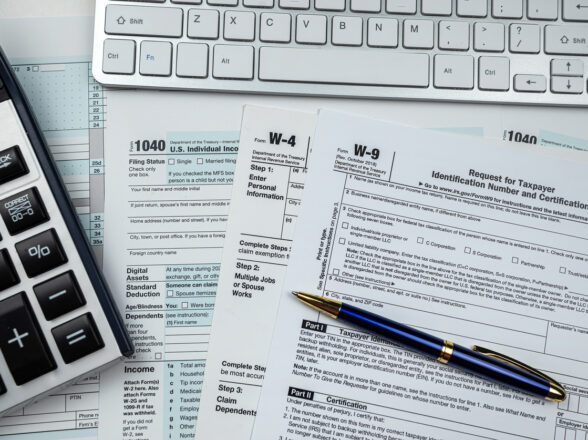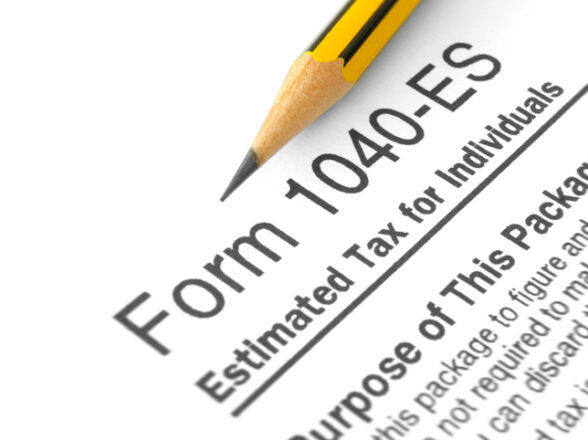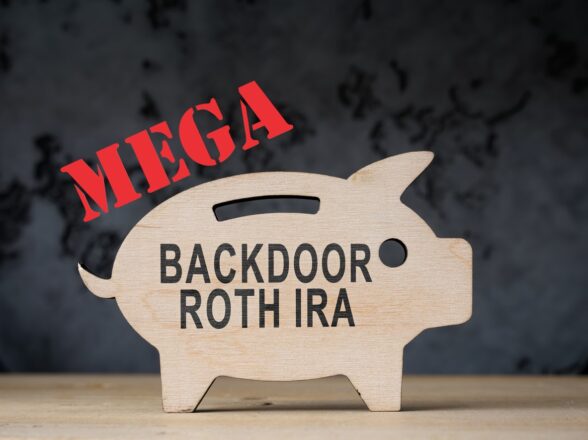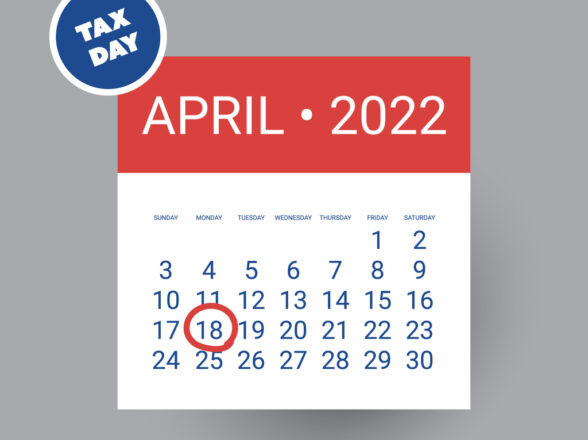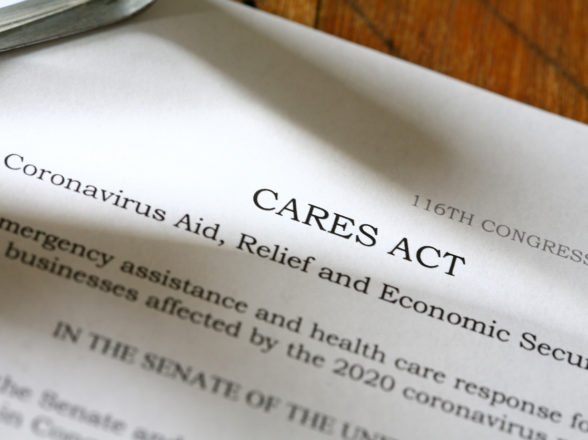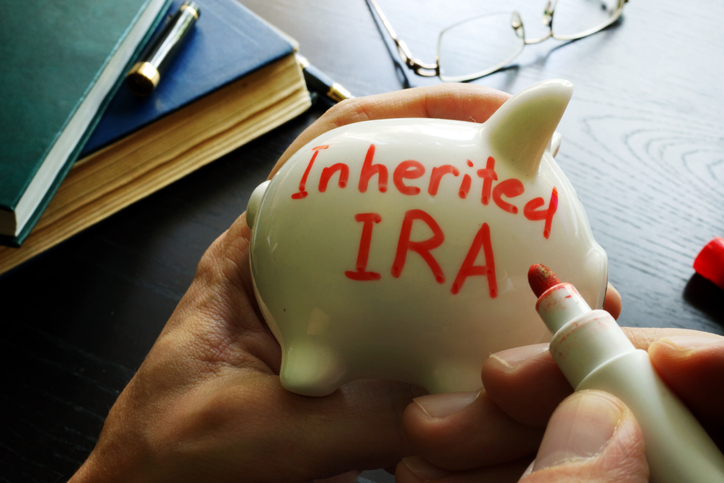Blog
5 Important Components of A Good Estate Plan

It’s safe to say that thinking about the ideas of disability or dying are not generally pleasant topics for anyone. However, as the old cliché goes, the only things certain are death and taxes. The clients we work with here at Infinium often times are quite busy, so carving out time to address your game plan for when and if these happen can be a tough proposition. This is one area of our clients’ lives that we can add a lot of value – we can take on the burden of making sure your plan happens, although we can’t do it alone. I believe one of the main reasons clients don’t undertake this very important task – completing their estate plan – could come down to merely a lack of awareness about what estate planning is and how does it work. Thus, we have put together some of main points that all investors should consider when starting out the process.
When you complete your estate plan, this implies that it is important for your loved ones to know who your advisors are, what your debts are, and where you hold your assets for them to access, manage, and benefit from what you leave behind when you are gone. So, getting organized when it comes to estate planning will eventually pay dividends.
Although there are many parts of estate planning, the first thing you should do is conduct a review of your estate assets. When clients agree to complete a comprehensive financial plan with us, a great deal of this work is already done. All the property you own constitutes your estate, including land, cash, retirement accounts, vehicles, savings, clothes, investments, jewelry, and houses, among other things.
At the bare minimum, an estate plan should include a will and a durable power of attorney. Medical directives are also critical because they allow you to appoint an individual to make medical decisions on your behalf. On the other hand, a trust will help you avoid probate and manage your assets when you are sound and strong and after you are gone.
Before delving deeper into that, below is some insight into a few estate planning terms you are likely to encounter.
Common Estate Planning Terms
a) Principal and Income
Respectively, the reference here is the property or capital of an estate or trust. That constitutes the returns from the property. Such returns include rents, interest, dividends, among other earnings. Sometimes, gains from appreciation in value may also be part of income.
b) Fiduciary
A trust company, an individual, or bank that acts for the benefits of another is known as a fiduciary. That includes personal representatives, trustees, and executors in the case of estate planning.
c) Executor
A personal representative or sometimes executrix, if it is a woman, is the other term used to refer to an executor. Such an individual, trust company, or bank settles a testator’s estate in line with the terms of the will. If a will is unavailable, the settlement will be according to the laws of the decedent’s estate (intestacy).
Note that a different name, such as an “administrator,” can also refer to the person acting in intestacy.
d) Grantor
Otherwise known as the trustor or settlor, a grantor transfers property to a trustee to hold or own. That is subject to the terms of the trust agreement setting forth your wishes. The same term refers to the individual taxed on the trust’s income, and that is for income tax purposes.
e) Trustee
A trust company, individual, or bank that holds legal title to the property for the benefit of another and acts in line with the terms of the trust is known as a trustee. The only confusing bit, in this case, is that one can sometimes be both a trustee and a beneficiary.
That is the case when one is dealing with the same lifetime (inter-vivos) trust they established or a trust that someone else establishes for you at their death (testamentary trust).
f) Testator
The reference here is the person who has made a valid will. Sometimes, “testatrix” is the term used to refer to a female testator.
g) Beneficiary
The person who is to receive property either in trust or outright is known as a beneficiary. The same term applies to those whose benefit a trust or will was made.
Generally, the administration of a trust or an estate after a person has rested requires the fiduciary to address particular routine issues and adhere to several standard steps when distributing the decedent’s assets in line with his or her wishes. Understand that these guidelines should focus on activities occurring in a trust or an estate immediately after one is gone.
Essential Components of An Ideal Estate Plan
Getting organized is not an option when it comes to estate planning. Probably, the biggest benefit of doing so is that it allows you to dictate how your estate will be handled and what your loved ones will receive while you are still alive and well. So, if you want your tomorrow to be the way you envision it, you need to plan today.
A properly prepared estate plan lays out your wishes in the most tax-advantageous manner. That way, you can trust that there will be no misconceptions, questions, or misunderstandings about what you want regarding your assets and possessions once you give up the ghost. For that reason, your estate plan should include the necessary components.
Here are details on the critical components of a good estate plan.
1. Guardianship Designations
Most trusts and wills include this clause, but some do not. Although it is overlooked, picking a guardian is not an option if you have minor children or if you are considering having kids. Additionally, ensure that the couple or individual you give the responsibility of guardianship is genuinely willing to raise children, shares your views, and is financially sound.
Also, a contingent or backup guardian should be named, and that applies to all designations. The absence of guardianship may compel a court to rule that your children live with a family member you may not have selected. In extreme situations, the court can mandate that your loved ones become wards of the state.
2. Healthcare Power of Attorney (HPOA)
The HPOA is a signed legal document with a single person’s name as your healthcare decision-maker if you cannot make decisions yourself. So, picking someone who would likely recommend a course of action you would agree with, one you trust, and who shares your views is a wise idea. These are some of the things you should never ignore if you are considering executing the HPOA.
The reason is that the person you choose could have your life in their hands. Otherwise known as an advanced medical directive, a living will outlines your wishes about medical care if you cannot communicate, are incapacitated, or are terminally ill.
A living will has details of your wishes concerning decisions about life support and any kind of life-sustaining medical intervention that you do or do not want. Getting HPOA documents drawn up at the same time as your will is advisable. The implication is that medical directives are essential if you want to make specific medical decisions about your life that you do not wish to leave up to chance.
The documents you include in your estate plan may differ by state depending on local laws, and that is why consulting an estate attorney when drafting such documents is advisable. Medical directives include documents like a durable power of attorney, a healthcare proxy, medical instructions, and a living will.
When selecting someone who can make medical decisions on your behalf, you can opt for a healthcare proxy or a durable power of attorney. Note that a living will provides information to your healthcare provider on whether or not to withdraw life support if you are terminally ill or in a vegetative state.
You can also provide details on the action to be taken if you are in a health state that is not as serious but still unable to decide on your own. Do not forget to identify a backup agent if your initial pick cannot act when necessary or is unavailable.
3. A Will
In most cases, an estate plan includes a last will and testament, commonly known as a will outlining your wishes for the assets that you own at your passing. In simple terms, a will allows you to name the individuals you would like to leave something to when you are gone.
Mostly, in the absence of a will, one’s assets follow a process referred to as probate. That suggests that the state determines the distribution of your assets based on state law. If you want your family and assets to skip the probate process and be distributed as you wish, you need to prepare a will.
Also, consider discussing your plans with a few of your closest and more trustworthy heirs when considering the possessions you will leave to your friends and family. That way, you will avoid any issues or disagreements that may emerge when you are gone. You also need to update your will when such significant life changes like divorce or marriage set in.
Understand that creating a will and establishing a chain of legal guardianship for your child if something happens to both parents is imperative once you have children. Sometimes, creating a will if you have financial assets, a spouse, a small enterprise, and children can become complicated. When that is the case, you should consider consulting an estate attorney for help.
4. Durable Power of Attorney (POA)
The other important thing you cannot afford to ignore in estate planning is drafting a durable power of attorney (POA). That will allow the agent or person you assign to act on your behalf for financial purposes when and if you become incapacitated. A POA can give your agent the power to enter into financial transactions, transact real estate, and make other legal decisions as though they were you.
Note that you can revoke a POA at the time of your choosing as long as you are mentally competent, physically able, or upon death. Setting up reciprocal powers of attorney, in this case, makes sense for spouses in most families. As much as that is the case, having a trusted advisor, another family member, or a more financially savvy friend act as the agent may make more sense in some cases.
5. Living Trust
First, note that a living trust can be used to manage your estate both before and after your death. A living trust is a legal arrangement between an institution, a person, bank, or law firm and a beneficiary. The name used to refer to the institution or person appointed by you to manage items in the trust is “trustee,” and they hold the legal title to the property.
If it is well-drafted, the effectiveness of your trust can continue even after your death. One of the benefits of setting up a living trust is that some trusts attract tax benefits for yourself, the donor, and the beneficiaries you choose. A trust also allows you to avoid probate with your items that are not part of your will.
Conclusion
If your estate planning is not in order, consider including each of these components as soon as possible. According to the details above, there are many parts to a complete estate plan. So, tackling each part at a time will help you draft a thorough, conclusive, and comprehensive plan that protects everyone you love. The team here at Infinium are here to help, so please be in touch because such an important effort is far easier to complete when you have partners willing and able to get it done.







































